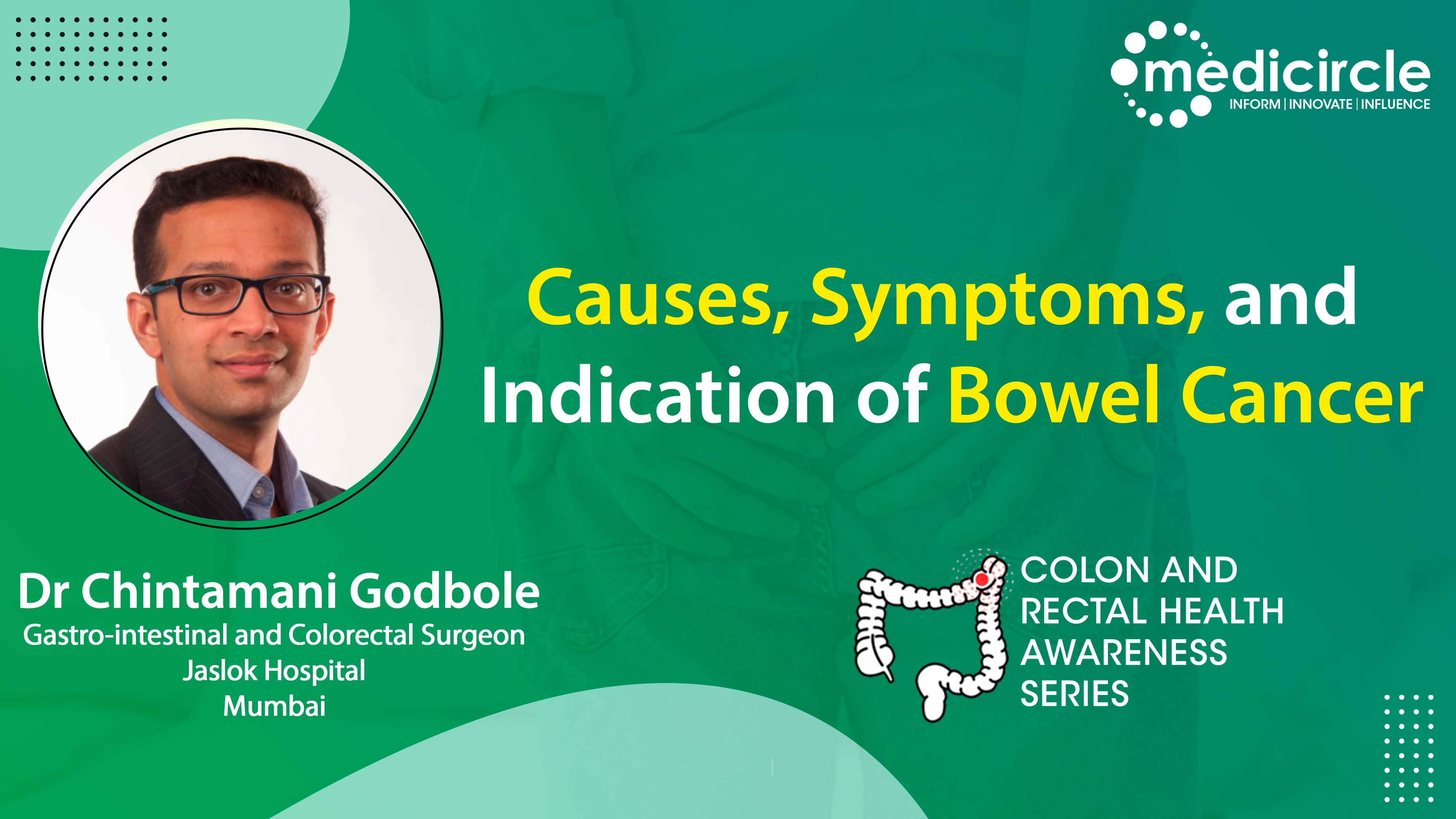Passing stool after having a meal is usually a result that tells us that our digestive system is functioning normally. But bleeding in stool always makes an individual worried. It can be a sign of a severe health condition that might need treatment. So let us understand more from Dr. Chintamani
Dr. Chintamani Godbole is a renowned Gastrointestinal and Colorectal Surgeon in Mumbai and currently practicing at Jaslok Hospital, Mumbai. For the past 8 years, he has worked in this field.
Indication of bleeding in stool
Dr. Chintamani Godbole says, “Bleeding in stool indicates a problem in the intestine. It is not considered normal. The classification of bleeding in stools is as follows -
- Visible bleeding- This is complained about by patients themselves. Patients report this blood loss to their doctors as it is visible.
- Occult bleeding - This means bleeding is happening in small quantities in stools and is not visible to the patient. This bleeding is many times ignored as the blood loss is not viisble to the patient. This is commonly seen in patients having iron deficiency. A stool test is important in occult blood.”
Causes of bleeding in stool
Dr. Chintamani Godbole states, “The causes of bleeding in stool are as follows-
- Piles or hemorrhoids- Linning prolapses from anal passage causing bleeding
- Anal fissure - cut or fissure of the anus
- Rectal ulcers in patients
- Diverticulitis
- Colonic polyps
- Colorectal cancer
- Inflammatory bowel disease
- Ulcerative colitis
- Crohn’s disease.”
Bowel cancer
Dr. Chintamani Godbole informs,” bowel cancer is cancer arising from the lining of the colon and rectum. This lining of the colon helps absorb water and salt from the stool to make stool more solid. Bowel cancer can start Bowel polyp which can change into bowel cancer with time. It is important to note the progression of a polyp into cancer and it can take years for the polyp to transform into cancer. This is very important because if the patient has symptoms suggestive of a bowel polyp, the patient must diagnose and treat it pretty much in time to prevent the formation of bowel cancer in the future.
Symptoms of bowel cancer
Dr. Chintamani Godbole states, “The symptoms of bowel cancer are as follows-
-
Bleeding in stools which can be visible and occult and bright red bleeding
-
Change in bowel habits or specific patterns of bowel movement for more than 2 weeks like developing constipation or loose stools for more than 3 weeks.
-
Lump in abdomen
-
Pain in the abdomen due to narrowing of bowel tube
-
Anemia due to invisible loosing of blood in stools
-
Unexplained fatigue or weight loss
Diagnosis of bowel cancer
Dr. Chintamani Godbole says, “The diagnosis of bowel cancer is as follows -
- Bleeding in stools
- Change in bowel habits
- Signs of anemia
- Detailed medical history and evaluation
- Examination of the abdomen and rectum
- Certain investigations like colonoscopy
A colonoscopy is an excellent test that evaluates the colon with the insertion of a camera. It is a type of endoscopy. It rules out serious problems in the intestine.”
Prevention of bleeding in stools
Dr. Chintamani Godbole emphasizes, “A lot of these problems cannot be prevented as such. The prevention of bleeding stools is as follows-
- A healthy diet rich in fiber to avoid constipation and bleeding
- Good water intake to avoid constipation and bleeding
Rapid fire
Can a small amount of blood in stool be normal? Dr. Chintamani Godbole says, “Any amount of blood in stools is not normal and you should always get yourself checked.”
How to evaluate that blood in stools is an emergency? Dr. Chintamani Godbole informs, “In most cases, it is not an emergency unless there is a profuse amount of blood in stools and associated with lightheadedness and dizziness. It is important not to ignore blood in stools and consult a doctor immediately.”
Which specialist should an individual consult for bleeding in stools? Dr. Chintamani Godbole says,” If the bleeding continues for a few weeks and does not get stopped with the care given by the primary care practitioner, it is important to see specialists like a gastroenterologist or gastrointestinal and colorectal surgeon.”
Edited By: Dr Rati Parwani
Contributed By: Dr. Chintamani Godbole, Gastrointestinal & Colorectal Surgeon, Jaslok Hospital

 Bleeding in stools is a cause of concern. Dr. Chintamani Godbole sheds light on the need for treatment for bleeding. He emphasizes that the bleeding in stools should not be ignored at any point. He also shares some valuable insights on the causes, symptoms, and prevention of bleeding in stools and bowel cancer.
Bleeding in stools is a cause of concern. Dr. Chintamani Godbole sheds light on the need for treatment for bleeding. He emphasizes that the bleeding in stools should not be ignored at any point. He also shares some valuable insights on the causes, symptoms, and prevention of bleeding in stools and bowel cancer. 









.jpeg)




.jpeg)

.jpg)













